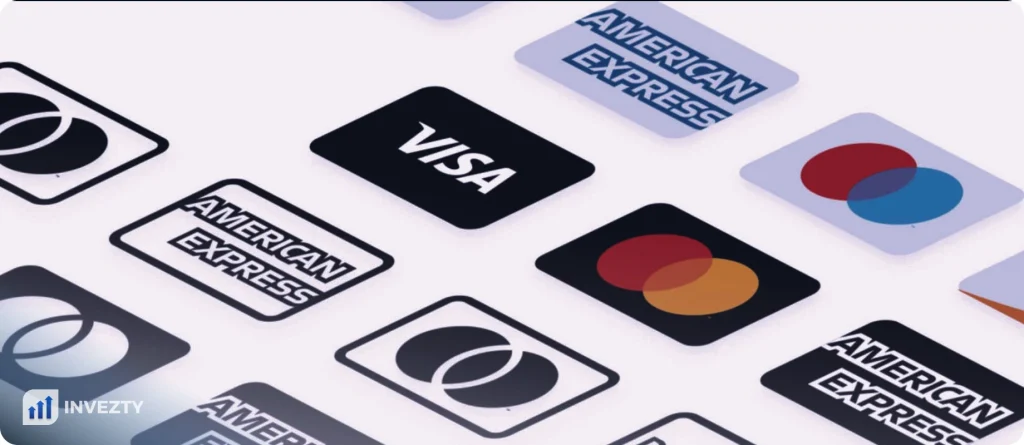Thadeus Geodfrey is a leading voice in the financial industry. You’ll appreciate the expert ease with which he does this. He deciphers the intricate link between emotions and behavior in trading and investment. With extensive experience as a senior trading writer, Thadeus imparts his knowledge and confidence to guide your trading boat. He’ll make you conquer your fears, break barriers, and capitalize on every potential opportunity. Follow his pieces and develop your knack for trading.
We may receive compensation from our partners for placement of their products or services, which helps to maintain our site. We may also receive compensation if you click on certain links posted on our site. While compensation arrangements may affect the order, position or placement of product information, it doesn’t influence our assessment of those products.
Online payment methods are an integral part of how we do business today. In trading, they have made it easier than ever before for traders to fund their account and receive their profits from online trading. Over time, these methods have evolved such that today we have a multitude of options to transact.
But what’s a payment method? What online options are there online traders and investors? This overview explores the different types of online payment methods traders can use and what to consider when picking a suitable option.
What are Payment Methods?

When you need to buy or sell financial securities online, whether it’s stock, foreign currency, or cryptocurrency, you’ll need to transfer money to the broker. Also, you may need to withdraw the profits you have made. It’s a payment method that facilitates all these. So, simply put:
A payment method is how you fund your account or withdraw funds from your broker account.
You can achieve this through a check, a bank transfer, plastic cards, cryptocurrency, e-wallets or mobile payment solutions.
Online payment solutions leverage technology, the Internet to be precise.
Ways to Fund Your Trading Account

Each method offers a unique approach, addressing specific user’s needs and the context of the transaction. That’s why choosing the right payment method is far-reaching for your success as a trader or investor. Efficiency and cost-effectiveness are among the key factors to consider. So, you need to be aware of the various options available and their distinctive features.
Let’s take a look at some of the most common ways you can fund your trading account:
- Bank Transfer
Bank transfer refers to the electronic transfer of funds directly from a bank to a trading account. While the method is slower than most options, it’s reliable and very secure. The processing time may be a few hours or days depending on the bank and countries involved in the transaction.
- Credit Cards
Credit cards allow traders to draw credit up to a certain limit. Examples of credit cards include Visa and Mastercard. Once you input your details, the card network sends your merchant bank authorisation to process the transaction. It’s a popular choice because of its speed and convenience as the funding is instant. You, however, have to deal with high fees, which may be a flat rate or a percentage of the transaction payment.
- Neteller
Neteller is a global e-wallet solution. It allows traders to load money into their account from a bank using a credit/debit card or more than 40 other payment options it supports. The speed with which it does this ranges from instant to a few hours depending on the loading option you choose. Neteller supports multiple currencies and is very secure.
- Skrill
Like all e-wallets, Skrill allows people to store money and make payments online and through mobile apps. It’s essentially reliable and among the pioneers of e-wallet services. Previously known as Moneybookers, Skrill offers fast and secure transactions. Also, it supports numerous currencies and is accepted by many online trading platforms.
- PayPal
PayPal, a pioneer in digital wallets, enables quick, seamless, and secure funding of online accounts. It typically completes transactions instantaneously and has an extensive acceptance across trading platforms.
- Other
The above-mentioned methods are just a few of the most common. There’s also another alternative card called Prepaid cards. Unlike debit and credit cards, prepaid ones have a predetermined amount loaded onto them. They are not linked to your bank account, limiting your spending to the amount loaded on them. You verify the balance and reload it with funds if necessary, whenever you want to use them.
There are also local payment methods specific to certain countries, while others are global. These other options include Google Pay, Apple Pay, WebMoney, Perfect Money, and Alipay. Each of these methods has its own set of features, advantages, and limitations and cater to different needs and preferences.
Popular Types of Payment Methods
While there are many types of payment methods, some are prevalent online based on their nature and functionality. Let’s look at some of the most popular types of payment methods, distinctively looking at their advantages and disadvantages.
Credit & Debit Card Payments
Credit/debit cards use a payment gateway to support an online transaction. Payment Card Industry Data Security Standards dictate how providers handle card transactions. These guidelines protect users against fraud making this option safe and reliable.
Credit and debit cards are physically similar but functionally differ. For debit cards, users draw funds from their bank account and transfer them to the service provider. On the other hand, credit cards allow users to borrow money to facilitate trade and pay for them at a later date. Thus, the limit for debit cards is often limited to the linked bank account balance, while for credit cards is the card’s credit limit. The borrowed monies attract interest charges aside from the transaction fees.
Pros
- Fast processing times
- Widely accepted by online trading platforms
- User protection through chargeback mechanisms
Cons
- Potentially high fees and interest rates
- Risks of overspending with credit cards
Electronic Payment Methods
Electronic payment methods are ways to pay for goods and services through electronic mediums, without using either checks or cash. They include credit/debit cards, virtual cards, e-wallets, and ACH (direct deposit, direct debit, and electronic checks). E-payments facilitate quick transactions and increase organisation and control without papers. Some like e-wallets e.g. PayPal, Skrill, and Neteller are known for their speed, security, and convenience, making them a popular choice for traders looking to fund their accounts quickly.
Pros
- Fast and secure transactions
- Multiple currency support
- Enhanced security features (e.g., two-factor authentication)
Cons
- Fees for certain transactions or currency conversions
Offline Payment Methods
There’s a common phrase “Cash is King”, crowning the offline payment methods such as checks, money orders, and in-person bank deposits as the best. However, with the rise of the internet, there’s been a need for quicker and more convenient payment methods. That’s why the almighty cash or offline payments are not as common today.
Nonetheless, some conservative traders still use offline payment methods. But they are typically slower and less convenient. Mostly used by those unable to access digital payment methods.
Pros
- Familiarity and comfort for some users
- Has no hidden fees
- No need for digital accounts or e-wallets
Cons
- Slow processing times
- Higher risk of human error and fraud
Cryptocurrencies
Cryptocurrencies like Bitcoin, Ethereum, and Litecoin have gained popularity as alternative payment methods for funding trading accounts. These digital currencies offer decentralised and secure transactions, often with lower fees compared to traditional payment methods. Cryptocurrency transactions are typically faster and can be more private, depending on the blockchain used.
Pros
- Lower transaction fees
- Fast and borderless transactions
- Enhanced privacy and security
Cons
- Volatility of cryptocurrency values
- Limited acceptance on some trading platforms
Transfer Fees and Commissions

As a trader, the probability of your trading activities highly depends on the costs associated with transfers. These costs include fees and commissions. So, you want to pay attention to them when choosing a payment method.
Different methods have different components of costs. Here are some:
- Bank Transfers: Though they have lower fees, they may charge foreign currency conversion fees, especially on international transfers.
- Credit/Debit Cards: These methods charge fees and especially higher rates for cash advances and international transactions.
- E-Wallets (PayPal, Skrill, Neteller): Their fees vary and are usually higher if you are to convert the currencies during withdrawals. Some platforms may charge a percentage of the transaction amount.
- Cryptocurrencies: Transaction fees can be lower, but the volatility in cryptocurrency value can affect the amount received.
Assessing the Safety of Funding Your Trading Account
As always, your safety online begins with you.
As such, it’s prudent you give it unreserved attention when choosing a payment method to fund your trading account. We have the simplest and easiest measures you can take to protect your trading account. It rounds down to picking a trading broker that meets these irreducible minimums:
Your chosen broker must use encryption and secure connections like SSL/TLS to protect data during transactions. Such encryption ensures your account and sensitive information are not intercepted by malicious actors.
Most sites employ two-factor authentication (2FA) to provide an extra security layer to the accounts. An excellent broker will use an authentication app or text message to ensure the person logging into your account is actually you and not someone who just has access to your password.
Your broker must operate within the Financial Conduct Authority (FCA) framework and other regulatory laws both in the UK and internationally. These legal frameworks protect consumers and adhere to strict security and operational guidelines.
Before committing to a payment method, seek other users’ opinions. You can read reviews from a trusted reviewer like us, and see what users on Trustpilot are saying about the website’s reputation and quality of service.
Conclusion
Payment methods make it possible for individuals to transfer money to or receive money from businesses, in this case, trading websites. Online options leverage the internet to bridge the gap between consumers and the goods or service providers, facilitating trade. These options include credit/debit cards, bank transfers, digital wallets, and mobile payments. Such methods are safe and secure, but the option you settle for depends on your situation and preferences.
With changing technology, more options become available daily. Stay informed, adapt to changing technologies, and take advantage of the newer and better options in the dynamic digital space.
